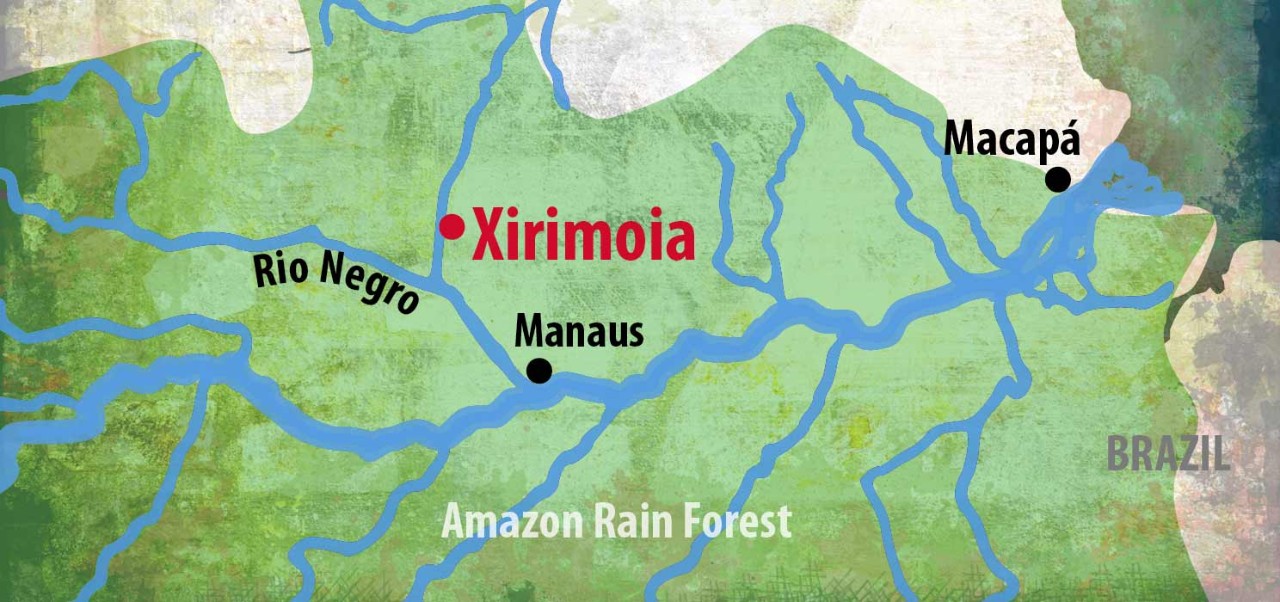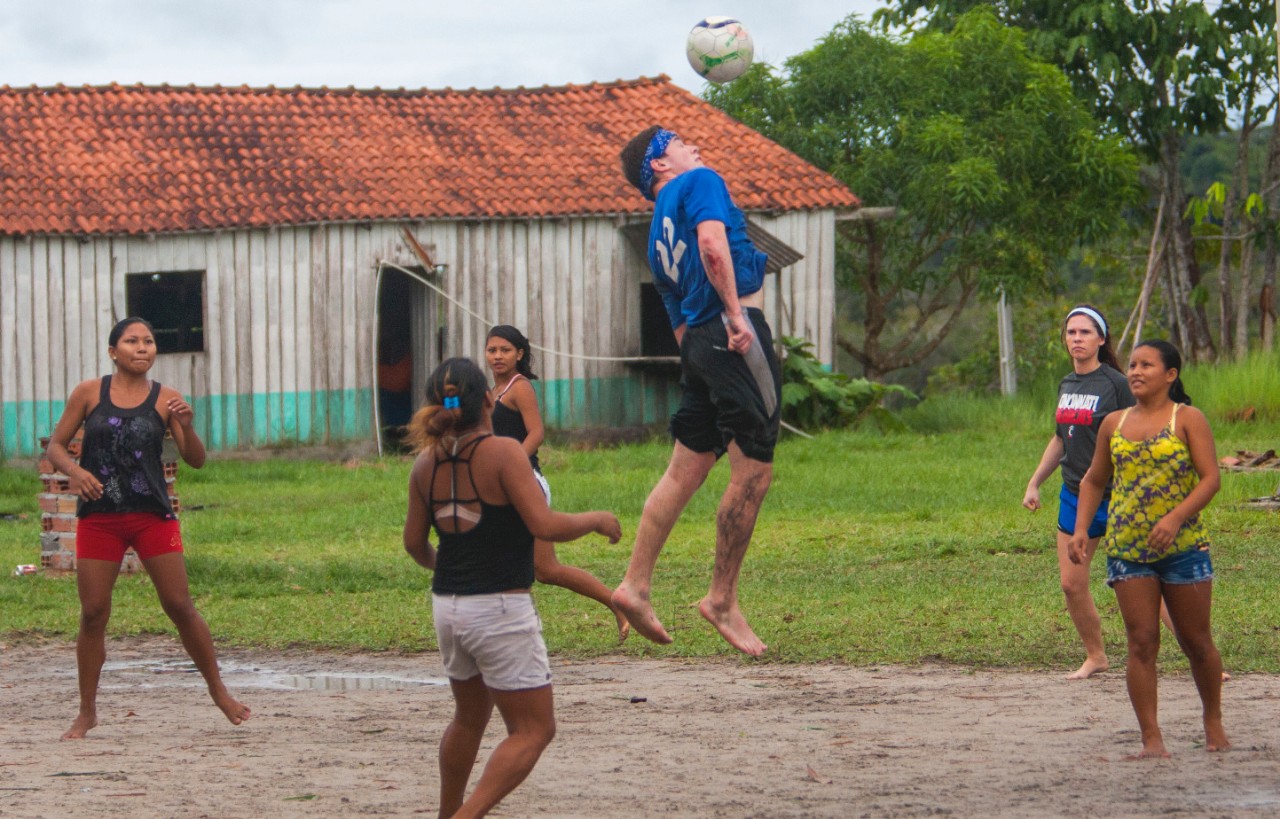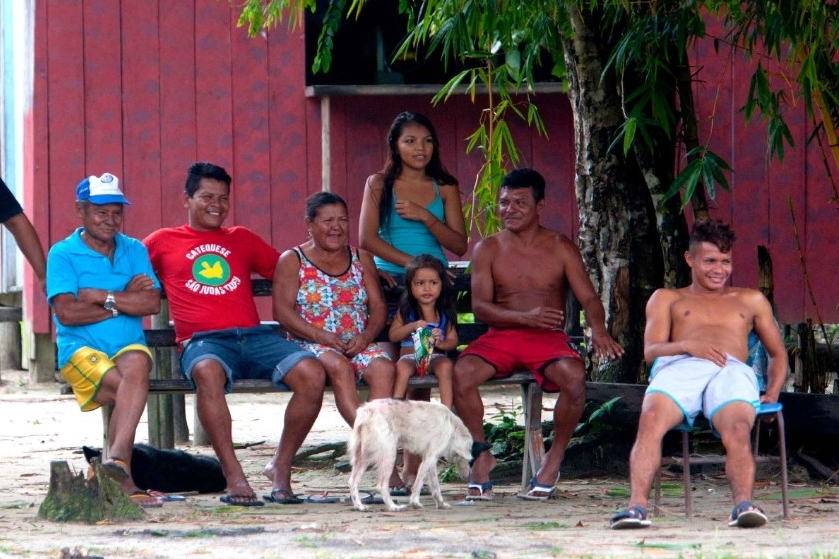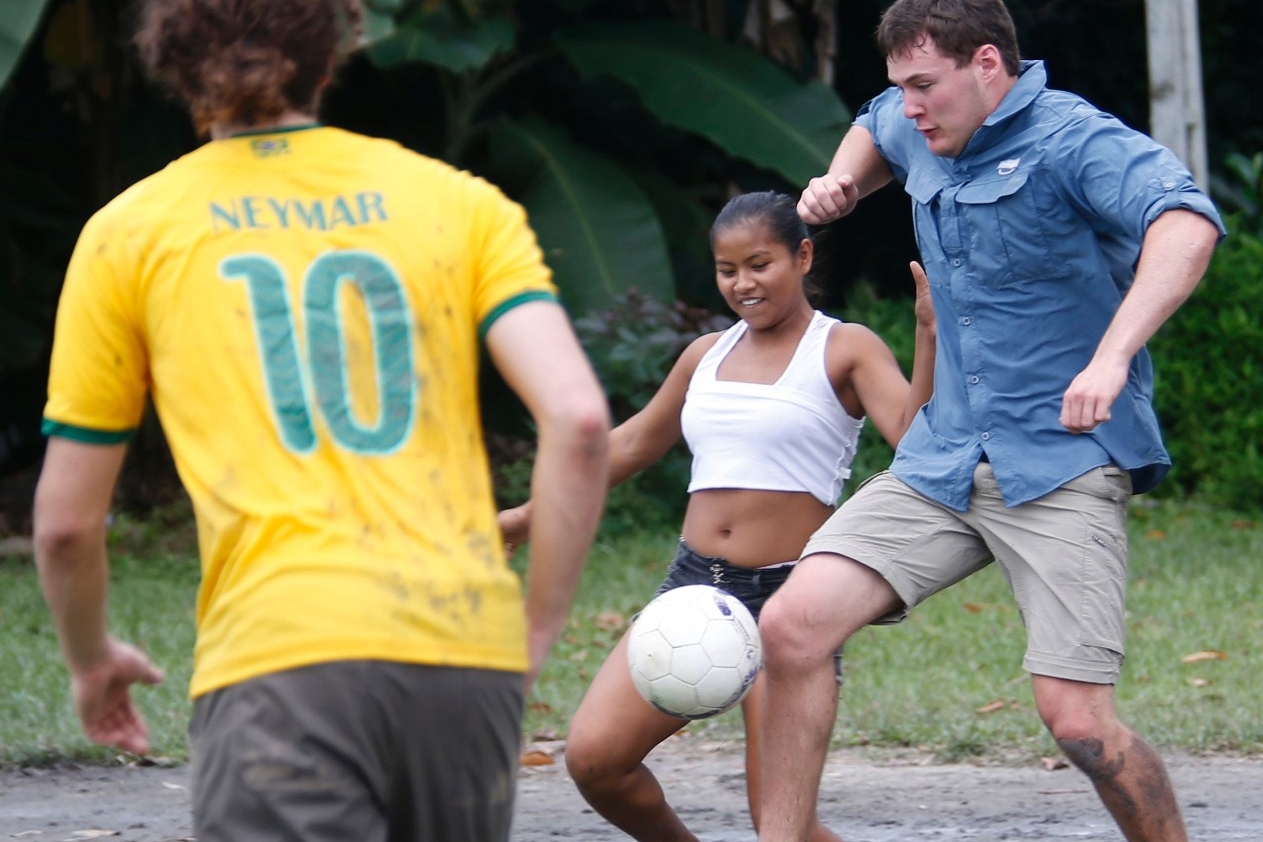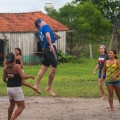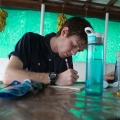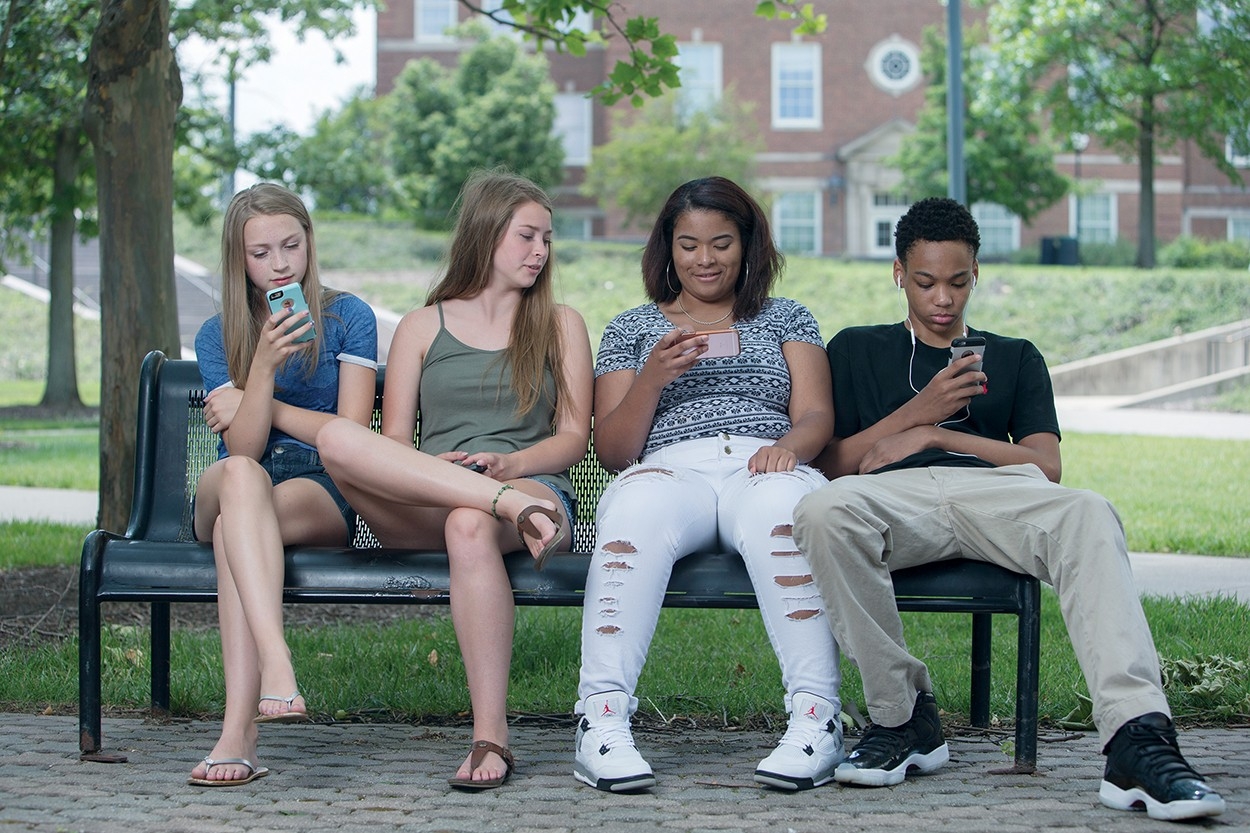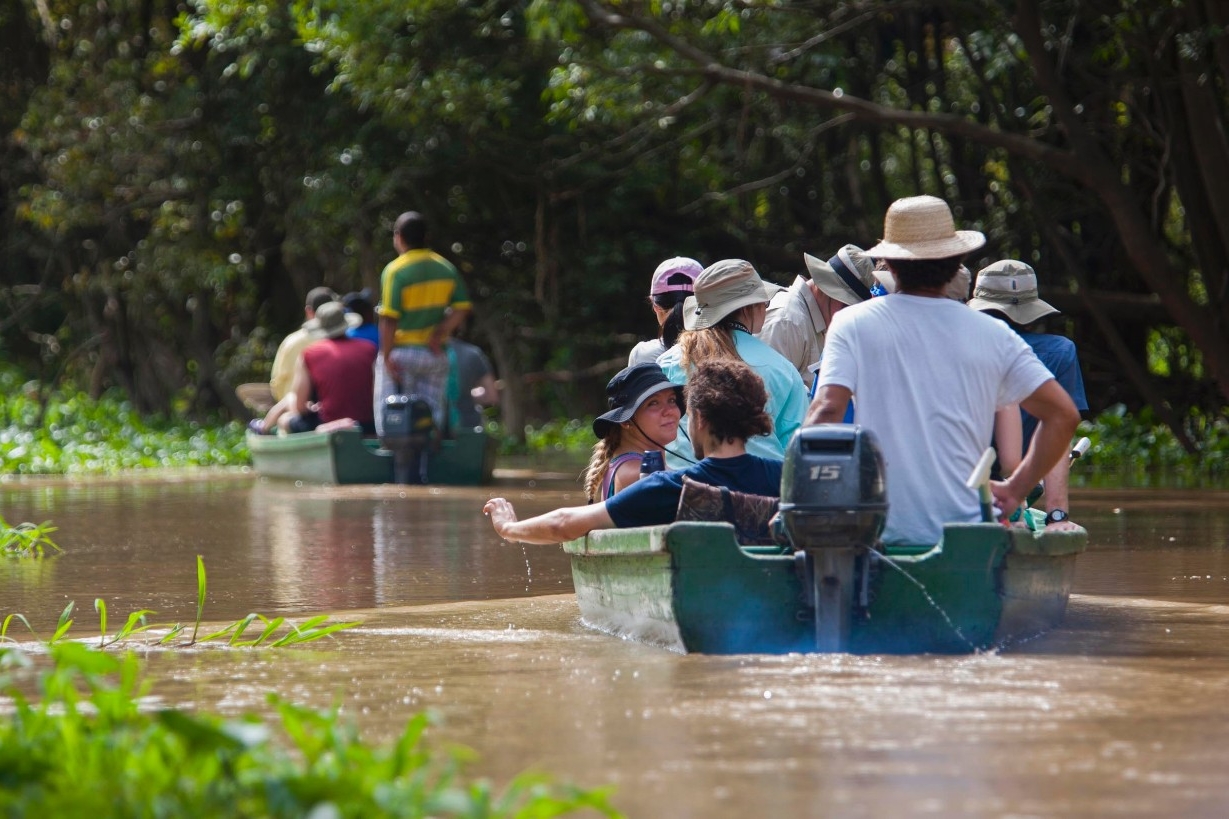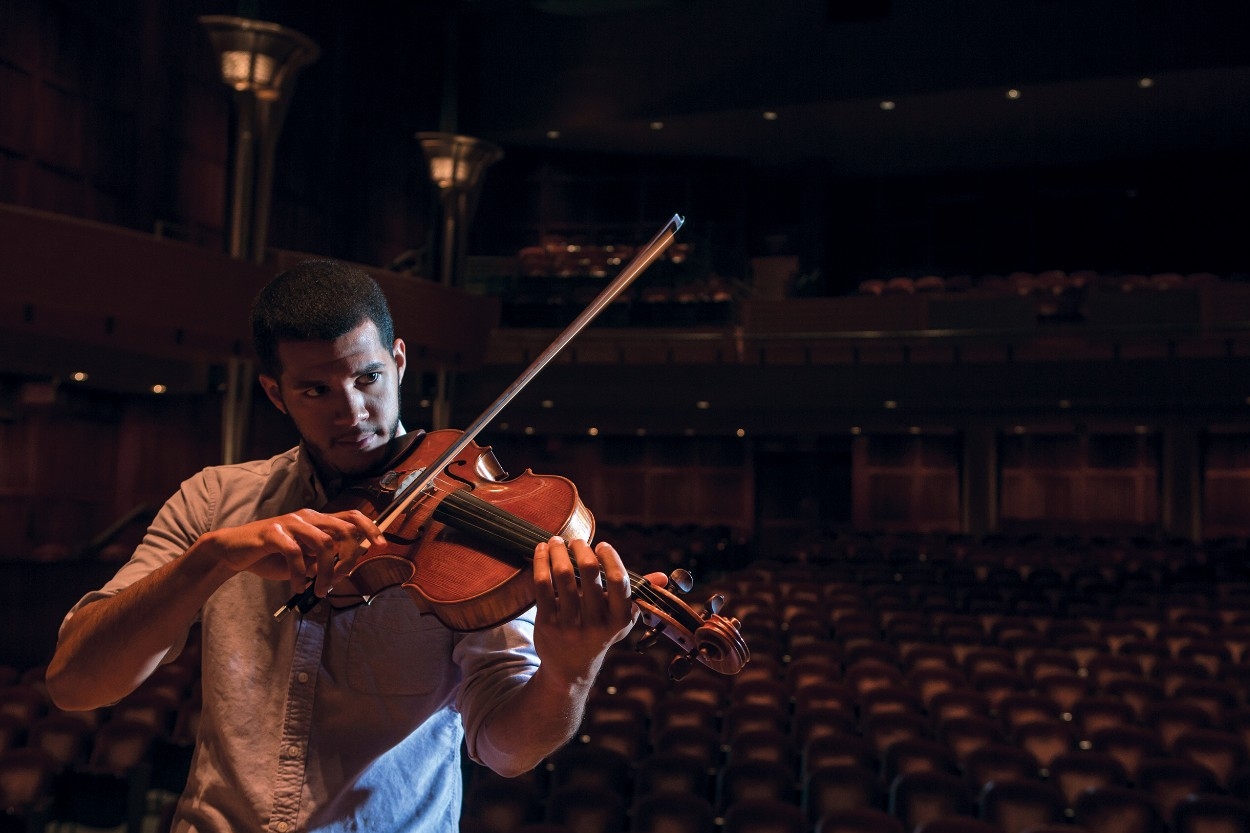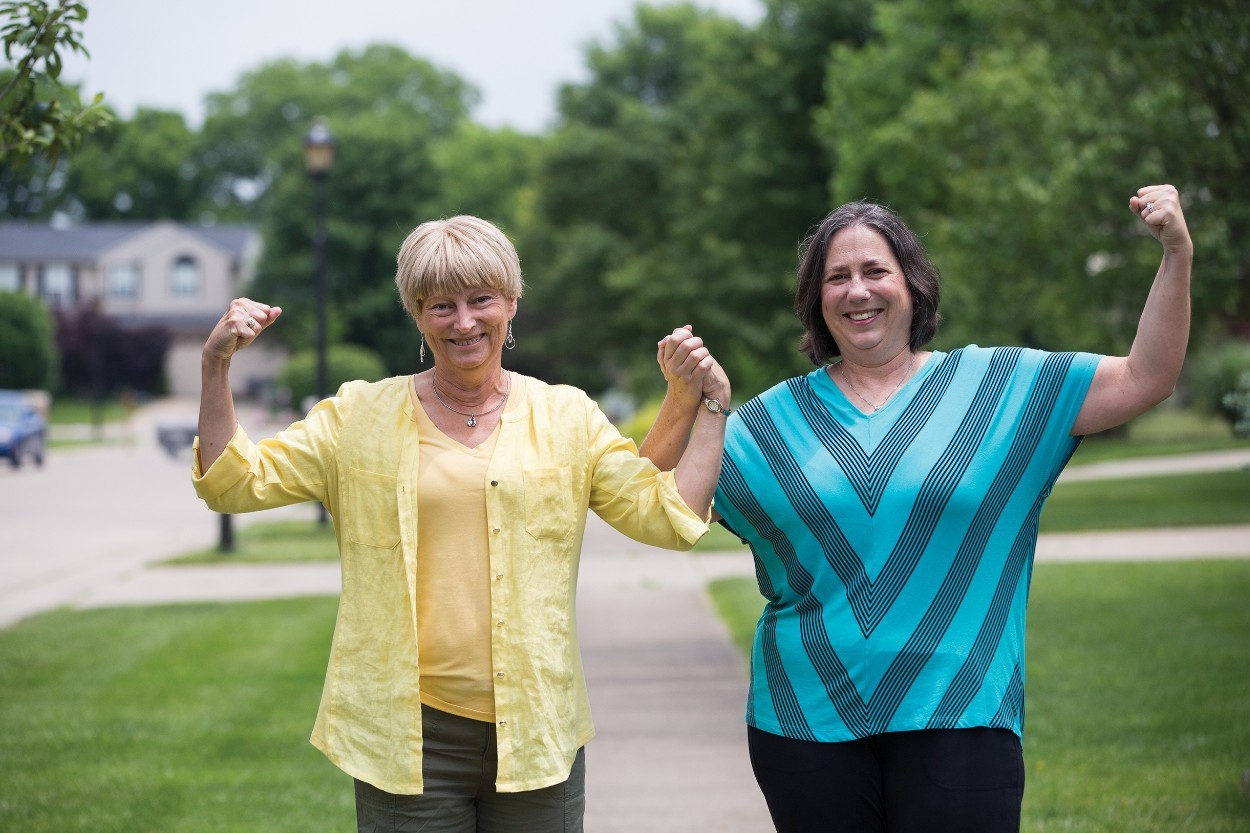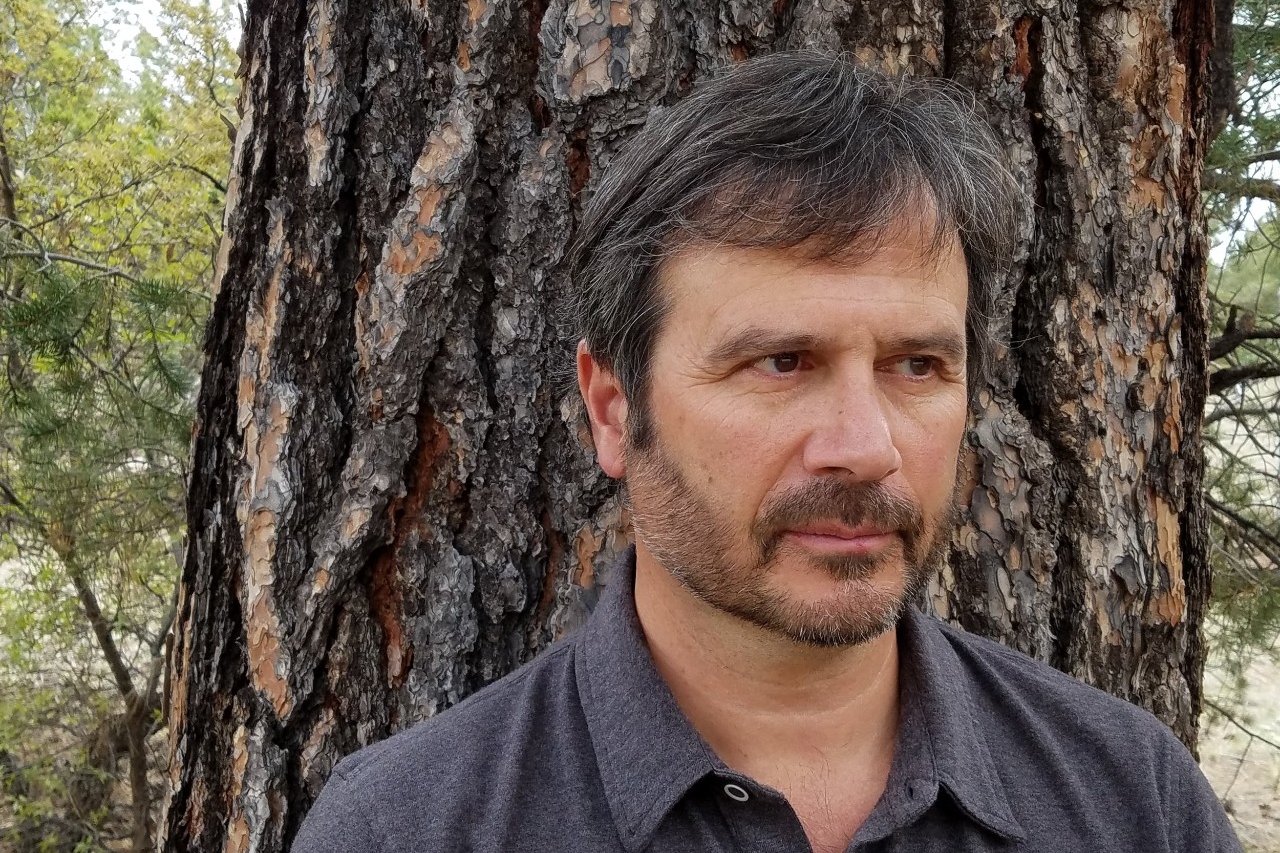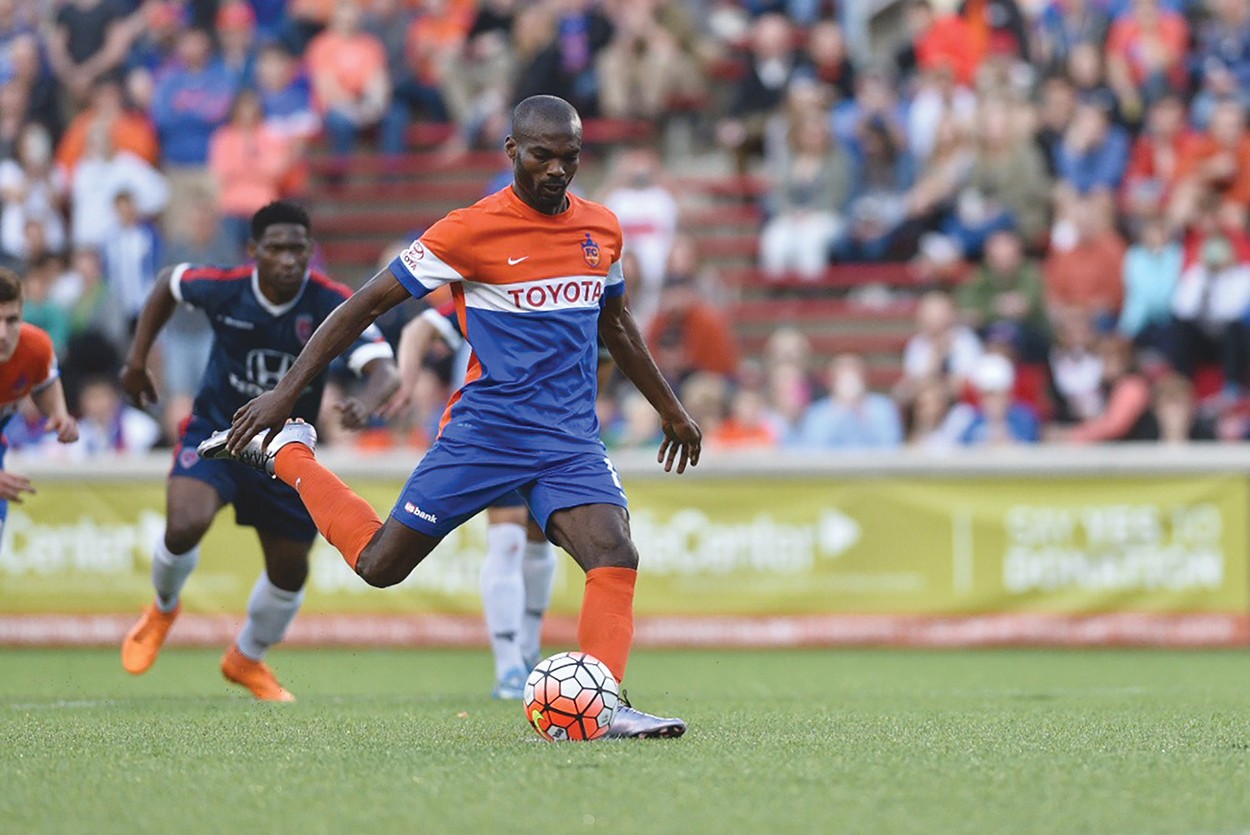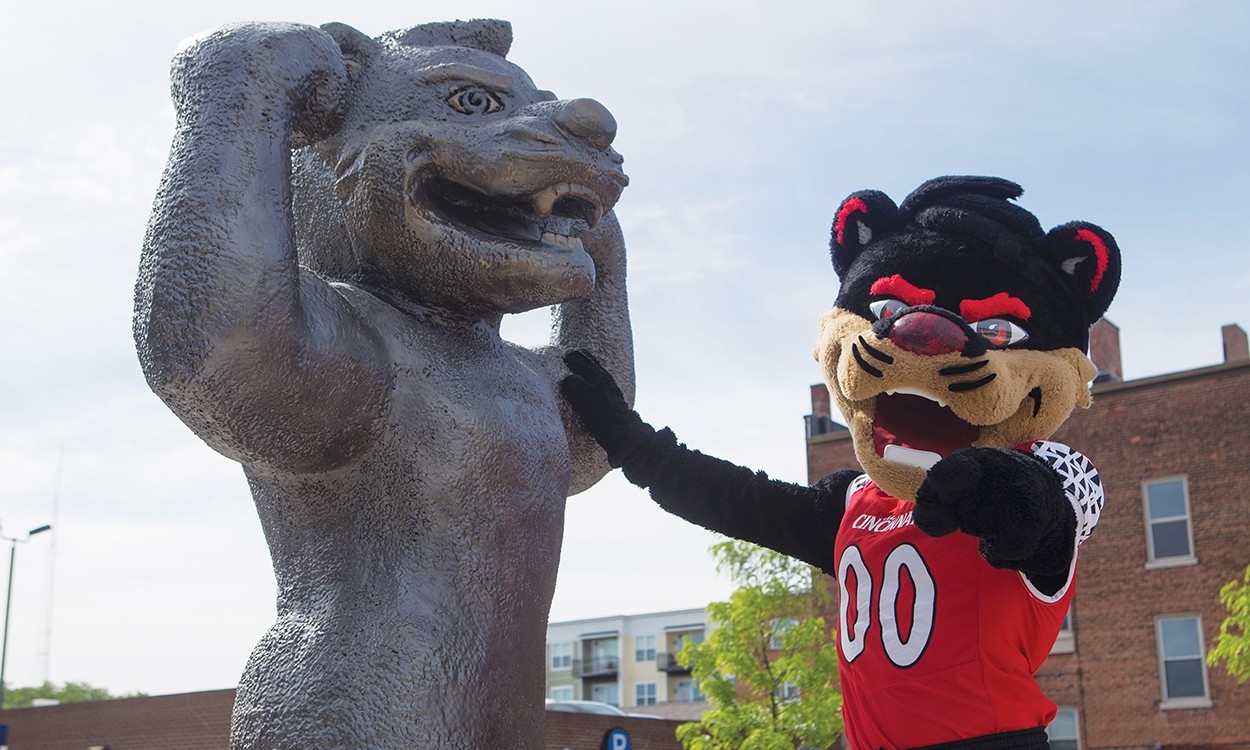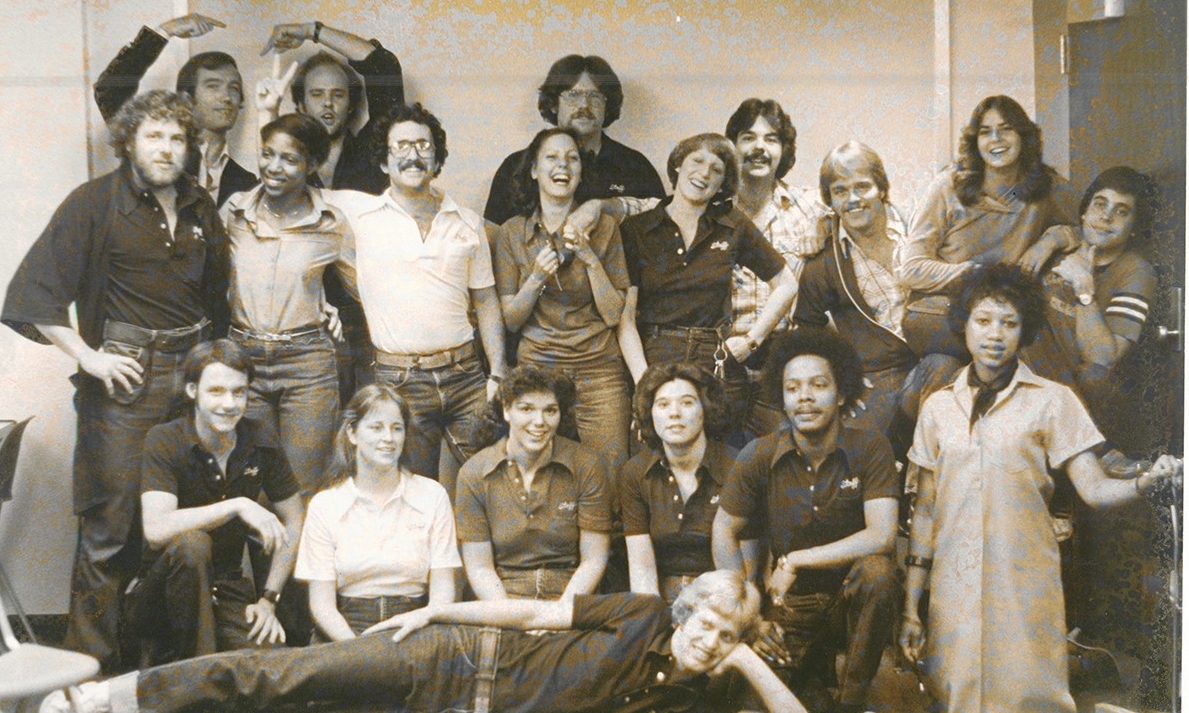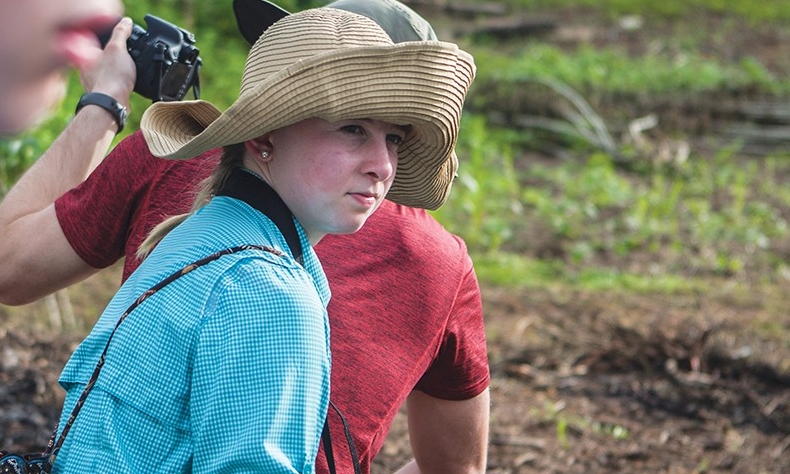Ugulima Amhes Garrido, the village’s 64-year-old matriarch and undisputed authority, meets the crowd of 16 UC students and five faculty and staff members as they step off a riverboat and onto a silted beach leading up to the village with its panoramic views of the muddy waters of the Rio Cuieiras, one of dozens of tributaries that feed into the Amazon River.
“Boa tarde,” she exclaims, her wizened and weathered face breaking into a wide smile.
A half dozen children, some wearing only shorts, shyly peer around the corner of a green clapboard building at the latest crop of visitors to their jungle home. Amazônia Expeditions, the family-owned riverboat excursion company leading the 10-day study tour, brings up to 60 visitors from across the globe each month to this off-the-grid village to engage with its indigenous residents and peruse the handicrafts made by local artisans.
The students stroll through the rural community on dusty brown walkways packed hard and solid by the slapping of bare feet. Clucking hens and squabbling dogs haphazardly scatter as the proud village hosts show off their simple but brightly colored wooden homes, many of which are powered by a generator located on the village’s outskirts and boast satellite dishes and flat-screen TVs.
Xirimóia looks timeless, but it was established only 20 years ago when Garrido and her family – now numbering 10 children, 46 grandchildren and 10 great-grandchildren – moved to the area from Santa Isabel, a city of less than 8,000 people located 310 miles away on the Rio Negro just south of Venezuela. The extended family’s new home along the Rio Cuieiras, Garrido said, brought them closer to hospitals and medical clinics in the sprawling Amazonian capital of Manaus – a mere seven hours away by motorized canoe.
As the heat of day begins to build, the awaited match gets underway on a sandy field situated prominently in the center of the village alongside partially constructed concrete buildings that will soon become the village’s school and library.

